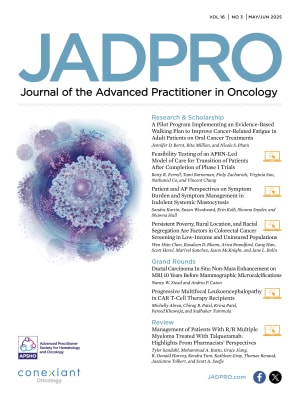Abstract
Venetoclax is a potent oral, highly selective small-molecule inhibitor of the antiapoptotic B-cell lymphoma 2 protein approved for chronic lymphocytic leukemia (CLL) or small lymphocytic lymphoma in treatment-naive patients (in combination with obinutuzumab) or for patients with relapsed/refractory CLL (in combination with rituximab). Venetoclax, in combination with azacitidine, decitabine, or low-dose cytarabine, is also approved in the United States for the treatment of newly diagnosed acute myeloid leukemia (AML) in adults who are ≥ 75 years or have comorbidities that preclude use of intensive induction chemotherapy. Clinical studies of patients with CLL or AML report both hematologic (e.g., neutropenia) and nonhematologic (e.g., gastrointestinal disorders and tumor lysis syndrome) adverse events associated with administration of venetoclax. It is therefore essential to provide information on the appropriate management of venetoclax-associated side effects. This article discusses the efficacy and safety of venetoclax administration and presents strategies specifically for the management of neutropenia and certain nonhematologic adverse events in patients receiving venetoclax for the treatment of AML and CLL.





